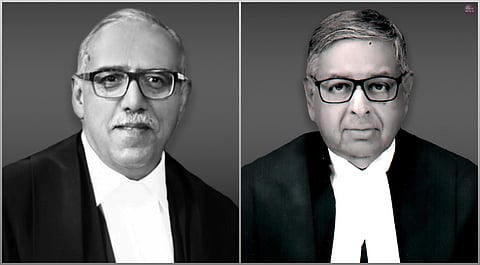
- News
- Columns
- Interviews
- Law Firms
- Apprentice Lawyer
- Legal Jobs
- हिंदी
- ಕನ್ನಡ

The Supreme Court recently held that the inherent power under Section 482 CrPC cannot be used by the High Court to reopen or alter an order, after disposing a petition decided on merits.